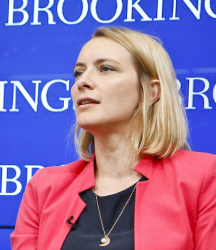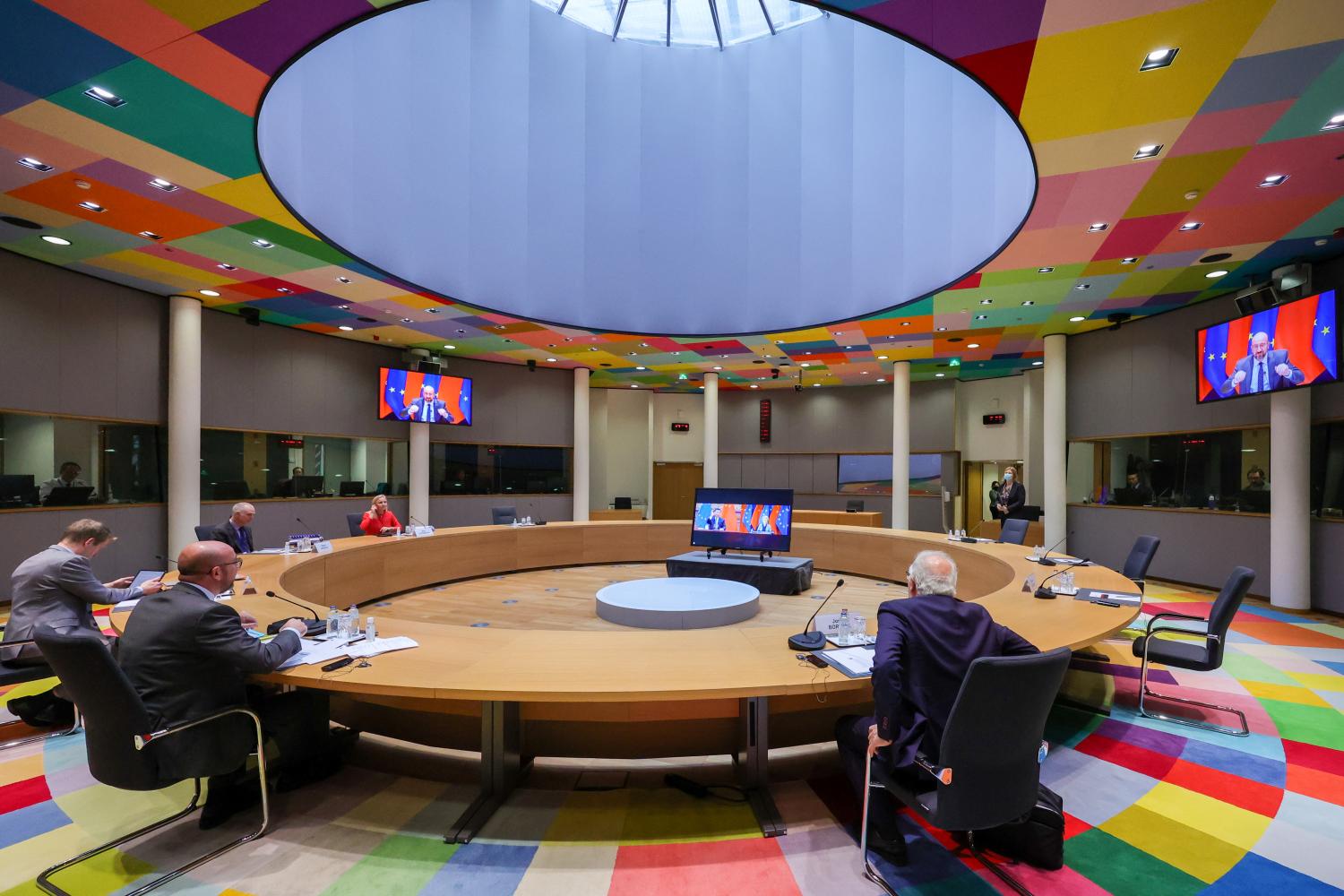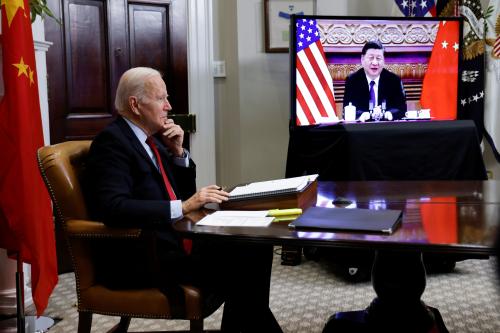Executive summary
 The Russia-Ukraine war has generated or accelerated negative trends in China’s relations with Russia, India, and Europe. By fall 2022, the growing limitations in China’s relationships with all three were evident. Russia is now a less reliable partner given the uncertainties over the longevity of President Vladimir Putin’s regime; China’s rhetorical support of Moscow’s justifications for its brutal invasion of Ukraine has heightened European concerns about Chinese influence on the continent; and India’s attempts to balance its ties with Russia and the West have not created new openings for Beijing.
The Russia-Ukraine war has generated or accelerated negative trends in China’s relations with Russia, India, and Europe. By fall 2022, the growing limitations in China’s relationships with all three were evident. Russia is now a less reliable partner given the uncertainties over the longevity of President Vladimir Putin’s regime; China’s rhetorical support of Moscow’s justifications for its brutal invasion of Ukraine has heightened European concerns about Chinese influence on the continent; and India’s attempts to balance its ties with Russia and the West have not created new openings for Beijing.
Introduction
The Russia-Ukraine war has generated or accelerated negative trends in China’s relations with Russia, India, and Europe. Before February 24, 2022, China largely viewed Russia as a stable, reliable partner as the two worked in tandem to undermine U.S. dominance of the international system. While Europe was moving closer to the U.S. position that China posed military, political, economic, and technological challenges to Western interests, many in Europe were reluctant to harm Chinese investments across the continent. India’s ties with China were already at a low point due to the 2020 Sino-Indian border crisis.
By fall 2022, however, the growing limitations in China’s relationships with all three were evident. Russia’s power had diminished as a result of its colossal failures on the battlefield in Ukraine, and Putin’s hold on power had become more tenuous as criticisms mounted from around the globe. Russia’s increased dependence on China might benefit the latter generally, but the prospect of regime change in Moscow has created uncomfortable uncertainty in Beijing. Similarly, the Russia-Ukraine war has heightened New Delhi’s concerns about Beijing’s intentions and actions. Beijing has been unsuccessful in using New Delhi’s differences with its Western partners on Russia to build a common stance supporting Moscow’s narrative, to create a wedge between India and the United States, to stem the deepening of the Quadrilateral Security Dialogue (the Quad), and to normalize Sino-Indian ties. Meanwhile, Europeans have been shocked and deeply concerned by China’s rhetorical support for the brutal and unprovoked Russian assault against Ukraine, and the war has strengthened trans-Atlantic ties.
-
Acknowledgements and disclosures
The authors thank Alexandra Dimsdale, Ryan Hass, Patricia Kim, Emilie Kimball, and Constanze Stelzenmüller for their comments on an earlier draft of this paper and are grateful to Lucy Seavey for her many contributions to the working group.
The Brookings Institution is committed to quality, independence, and impact.
We are supported by a diverse array of funders. In line with our values and policies, each Brookings publication represents the sole views of its author(s).









